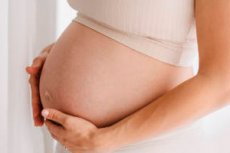Nye publikasjoner
Tegn på svangerskapsforgiftning er forbundet med økt risiko for tidlig demens
Last reviewed: 02.07.2025

Alt iLive-innhold blir gjennomgått med medisin eller faktisk kontrollert for å sikre så mye faktuell nøyaktighet som mulig.
Vi har strenge retningslinjer for innkjøp og kun kobling til anerkjente medieområder, akademiske forskningsinstitusjoner og, når det er mulig, medisinsk peer-evaluerte studier. Merk at tallene i parenteser ([1], [2], etc.) er klikkbare koblinger til disse studiene.
Hvis du føler at noe av innholdet vårt er unøyaktig, utdatert eller ellers tvilsomt, velg det og trykk Ctrl + Enter.

Personer med preeklampsi har økt risiko for å utvikle tidlig demens, ifølge en studie publisert i JAMA Network Open.
Valérie Olié, PhD, ved Santé Publique i Saint-Maurice, Frankrike, og kolleger innhentet data fra den landsomfattende prospektive unnfangelsesstudien, som inkluderte alle fødsler i Frankrike etter 22 ukers svangerskap mellom 1. januar 2010 og 31. desember 2018.
Personer i alderen 30 år og eldre uten historie med demens som ble fulgt fra fødsel til 31. desember 2021 ble identifisert; 1 966 323 individer ble inkludert i analysen, hvorav mindre enn 1 prosent utviklet demens.
Demens ble definert som hoveddiagnose ved sykehusinnleggelse i løpet av en gjennomsnittlig oppfølgingsperiode på 9,0 år. Forskerne fant at preeklampsi var assosiert med økt risiko for tidlig demens (hazard ratio, 2,65) sammenlignet med svangerskap uten hypertensive lidelser.
Når preeklampsi oppsto før 34 ukers svangerskap eller kom i tillegg til kronisk hypertensjon, var risikoen for tidlig demens enda høyere (henholdsvis hazard ratio 4,15 og 4,76). Alvorlig preeklampsi var ikke assosiert med tidlig demens.
«Resultatene legger tidlig debuterende preeklampsi til listen over livslange risikoer for sykdom eller medisinske konsekvenser av å ha preeklampsi», skriver forfatterne.
